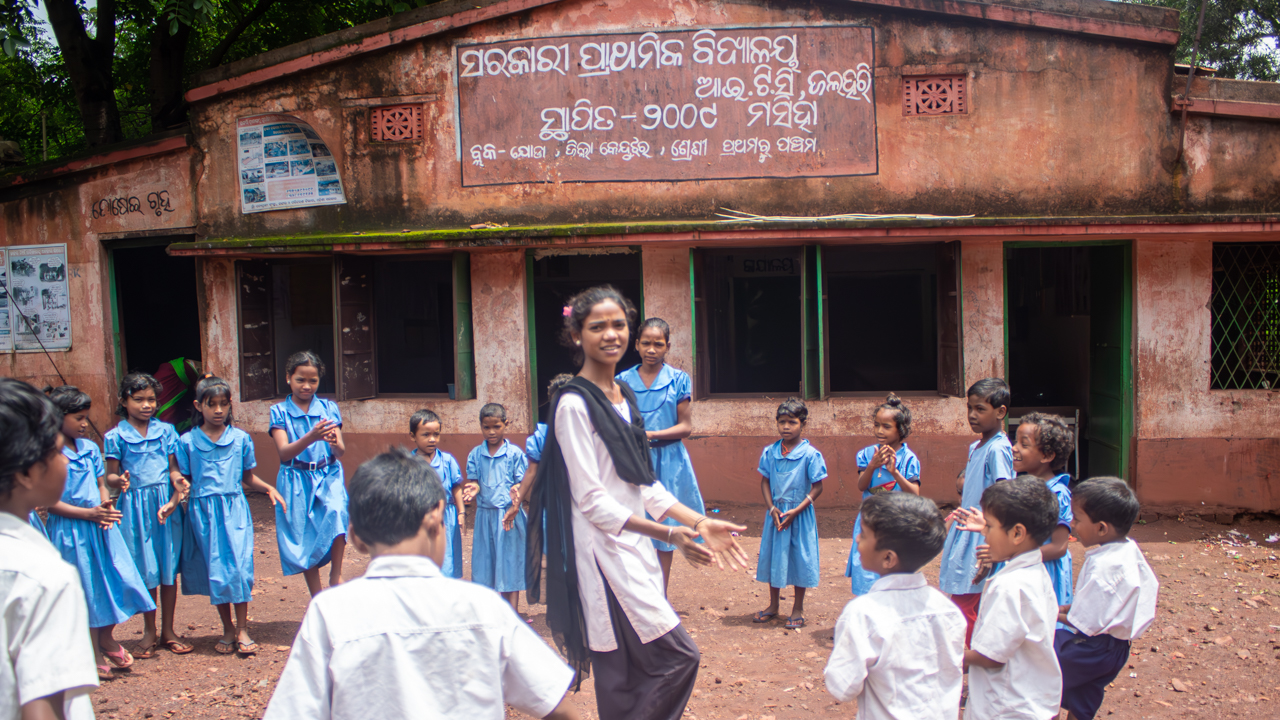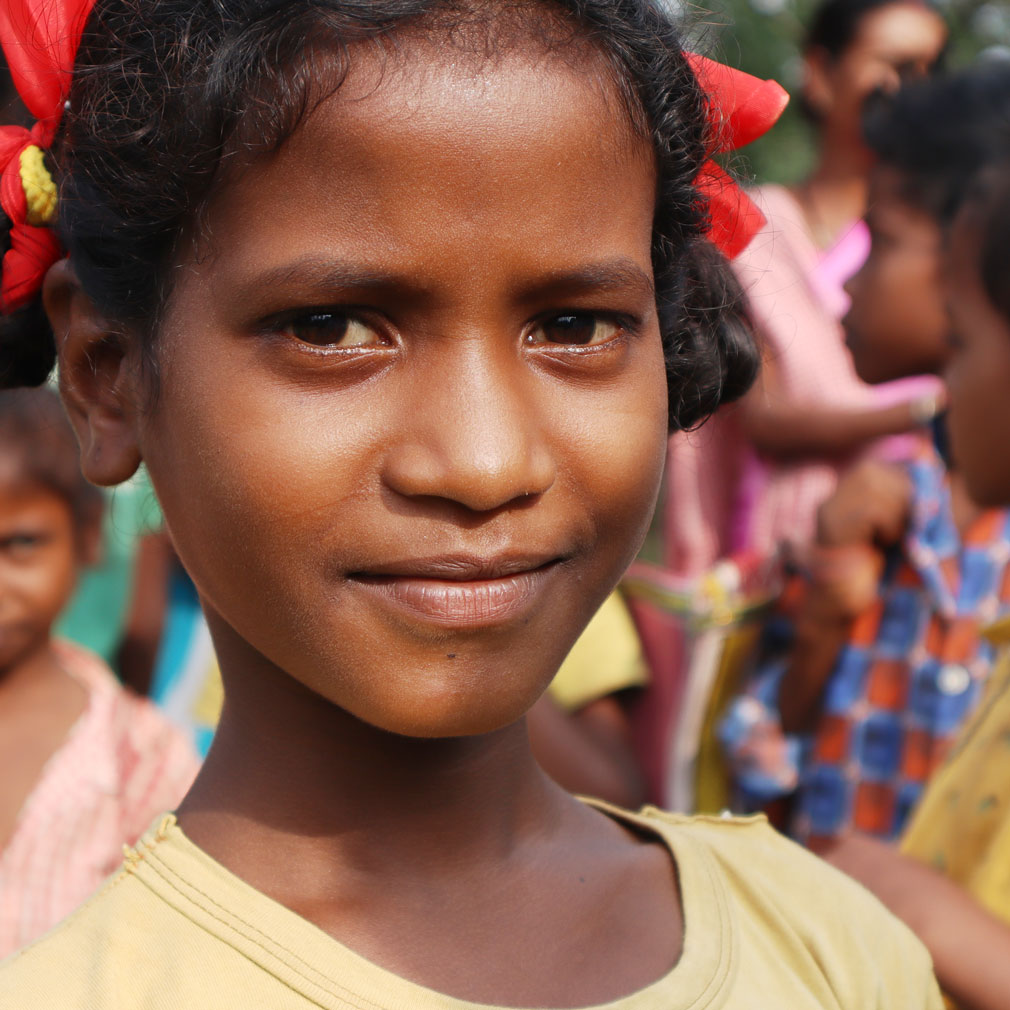
Greetings. Today, I, Asha Naik am going to open up about a chapter of my life which I have never shared before. This is to shed light on the fact that not everyone is fortunate, and some have had to fight relentlessly just to survive. We inhabit different worlds.
There’s a saying that suggests if you commit wrongs in your lifetime, you’ll face eternal challenges in a place akin to hell. Yet, I’d like to add that there’s no such thing as heaven or hell; instead, we experience both in the course of our lives. For some, life is filled with beauty, but for others, the word “beautiful” is absent from their vocabulary.
I’m a girl who has faced tremendous misfortune. Instead of having parents, I spent my entire first six years as an orphan. When I was nine, my parents took me to my uncle’s house in Champua, 45 kilometers away from my home village, because my father couldn’t financially support my mother, two siblings, and me. My grandparents and grandfather assured my parents that they would raise me as their own and send me to school. This is why my father agreed.
Gugudhari village with its farms and forests.
Like most children, I longed to be with my parents and two brothers, but circumstances forced me to keep silent. My life drastically changed when I moved in with my uncle’s family. They were kind to me, but only in front of my parents and the townspeople, not in private. Early every morning, my grandmother and father left for their work, leaving me in charge of all household chores—dishwashing, cleaning, tending to the animals, and more. After much toil, I was given only a bowl of rice for breakfast. Due to poor nutrition and excessive labor, I fell ill frequently. When my parents asked my grandparents, they adamantly refused their request to let me go home for a few days. They were so stern that even when I was sick, I was made to continue with my chores.
Asha Nayak doing household chores.
The fact that my parents couldn’t support me financially and my reluctance to reveal my grandparents’ mistreatment, despite the fact that they were my own, prevented me from seeking help on numerous occasions. The emotional hold my grandparents had on the villagers, along with my parents’ uncertainty about trusting me, made me feel a profound sense of responsibility. It was then that I understood my mother’s words: “We are women, so we must learn to sacrifice and persevere.” This taught me that this was a challenging phase in my life, and sacrifices had to be made. I accepted my grandparents’ gifts of trinkets in silence.
Asha Nayak’s responsibilities range from fetching water to taking care of animals.
After my uncle got married, a new aunt entered the picture. Initially, I thought she was kind, but after the guests left, I saw a different side of her. While my grandparents had instructed me to handle household chores, she began assigning me tasks that were sometimes dangerous and life-threatening. She sent me to the forest instead of school, with 5 to 6 goats every day, despite my protests. Every time I complained about missing school, she’d say, “Your parents are dreamers, and you want to be a collector. Dreams are good, but don’t dream the impossible.”
Dreams are just that—dreams, neither too high nor too low. However, my aunt convinced me that dreams should be in line with our circumstances. So, I abandoned my ambition to become an engineer and left school in the 8th grade, thinking of finding work to support my family. These days, I feel like a prisoner, yet I can’t fathom how I ended up in this situation. I’ve even started to doubt the existence of a higher power. If there were one, how could they let me suffer like this? Perhaps it would be better to cease existing.
One day, while visiting my uncle’s house, my father inquired about me. When he asked my aunt, she claimed I was at school. But when he checked, the teacher confirmed I had been absent for six months. This gave my father pause, as he had wanted me to become an officer, which is why he had sent me so far from home. He promptly took me back to Bambari ITC, our residence.
Asha with her father and mother
During this time, my mother worked as a helper in an anganwadi, earning a meager 2500. My father lost his job due to the closure of the mines. Our family’s situation was worse than ever. The plight of the poor is often trivialized. Many mines came to our town, promising jobs, only to realize their dreams and then abandon us after 1 to 5 years. I wonder what will become of the workers who rely solely on the mines for income once they close down. It takes a month to build a thousand-crore mine, yet building a hospital or school, both essential with modest budgets, requires neither government funding nor as much time. The government and mine owners could deploy highly skilled personnel to remote mining locations, but finding qualified individuals for education and medical services seemed beyond them.
By the time I returned home, my aspirations and dreams had all but vanished. I made the decision not to re-enroll in school. It was then that Sombari didi from Aspire NGO crossed my path, inviting me to join RBC in Joda. My parents agreed, but initially, I was apprehensive, fearing that RBC teachers would be like my grandparents and aunt. There’s a saying, “If bitten by a snake, a rope appears threatening.” I found myself in a similar situation, weeping at the thought of returning home. My parents let me return, but after some time, they convinced me that my grandparents and RBC teachers were not the same. I ought to give them a chance. Trusting my parents, I returned to RBC. Initially, their kindness and warmth charmed me, but to my surprise, it remained constant. I spent a year at RBC, and not once did I find my RBC teachers treating me like my aunt or grandparents.
Girls RBC, Joda- Girls from different communities, and backgrounds live here together and pursue their education.
From there, I enrolled in Baneikal Joda Hostel in the 8th grade, though the hostel staff wasn’t as kind as the RBC teachers. The teachers from RBC often visited me, providing encouragement. After much struggle, I reached the 10th grade, passed, and enrolled in intermediate Arts.
Upon joining college, I also became a “FLN volunteer” at my local school. My family’s financial situation remains dire. My mother works as an Anganwadi helper, while my father is unemployed. My dream of becoming an engineer has shifted. Now, my sole aim is to provide a better life for my family. Marriage and becoming an officer are no longer on my wish list. Recently, I joined the Barbil ITI, seeking a different path to earn a living.
Asha Nayak’s journey continues.
I’m unsure how much of my story will touch your heart or fill your time, but I’ve learned from my life that poverty can rob you of the right to pursue your dreams and aspirations. I observed my friends spending on lavish meals and clothing, while for someone like me, clothing serves primarily to cover the body. People often disregard the lives of the destitute, assuming they lack dignity. Once the mines are done with us, we’re discarded like insects in tea leaves. The government reaps substantial profits from mining areas, yet we lack roads to connect with towns, basic medical facilities for primary care, and schools.

Logo: Professor Amit Sheth
Website Design: Milanth Gautham